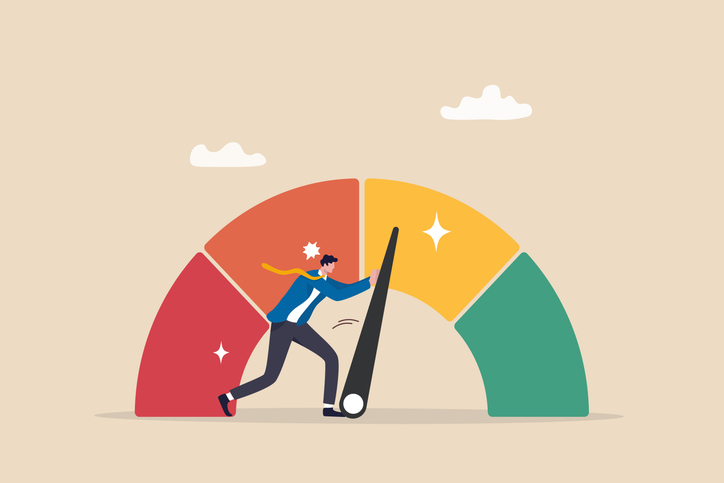By Mary Nebotakis, B. Eco, Dip. Financial Services, Managing Director, Natloans
Your credit score is one of the most crucial factors in determining your financial health and borrowing power. Whether you’re applying for a home loan, car loan, or business finance, lenders assess your credit score to gauge the risk of lending to you. A strong credit score can unlock better loan approvals, higher borrowing limits, and lower interest rates, while a poor credit score may limit your options or result in higher costs.
Understanding how your credit score works—and what impacts it—can help you take control of your financial future. Let’s explore the key factors that affect your credit score, how it influences loan approvals, and five actionable steps to improve it.
Factors That Negatively Impact Your Credit Score
Several factors can drag down your credit score, making it harder to secure finance at competitive rates. These include:
1. Late or Missed Payments – Payment history is a major component of your credit score. Late payments on credit cards, loans, or utility bills can significantly lower your score, especially if they become frequent.
2. Type of Credit You Use – Certain types of credit, such as payday loans or buy-now-pay-later services, can negatively impact your credit profile. Lenders may view these as signs of financial distress or poor money management.
3. Too Many Credit Enquiries – Each time you apply for credit, lenders perform a ‘hard enquiry’ on your file. Too many enquiries, even if they don’t result in a loan approval, can suggest financial instability and lower your score.
4. High Credit Utilisation – If you regularly max out your credit cards or maintain high balances relative to your limit, it signals to lenders that you may be overextended.
5. Defaults and Serious Credit Infringements – If debts remain unpaid and go into default, or if you are declared bankrupt, your credit score will take a severe hit, impacting your ability to borrow for years.
Factors That Positively Impact Your Credit Score
Just as certain behaviours can hurt your credit score, others can help improve it. These include:
Making Payments on Time – Consistently paying off loans, credit cards, and bills on time builds a strong credit history.
Maintaining a Low Credit Utilisation Ratio – Using less than 30% of your available credit shows responsible financial management.
Keeping Credit Applications to a Minimum – Only apply for credit when necessary to avoid excessive hard enquiries.
Holding Long-Standing Credit Accounts – A longer credit history, with responsible usage, demonstrates stability to lenders.
Regularly Checking Your Credit Report – Reviewing your credit file for errors and addressing any inaccuracies can prevent unnecessary score reductions.
How Your Credit Score Affects Loan Approvals
Your credit score plays a crucial role in determining your borrowing capacity and the terms of your loan. Here’s how it influences your lending options:
- Likelihood of Approval – A higher credit score increases your chances of being approved for loans, while a lower score may result in rejections or require additional security.
- Lender Preferences – Prime lenders offer the best rates and terms to borrowers with excellent credit, while borrowers with lower scores may need to seek specialist lenders who charge higher interest rates.
- How Much You Can Borrow – A strong credit profile can increase your borrowing power, as lenders see you as a lower risk.
- Interest Rates You Qualify For – Higher credit scores typically attract lower interest rates, meaning you pay less over the life of your loan.
Top 5 Tips to Improve Your Credit Score
If your credit score needs a boost, consider these five expert tips:
1. Pay Bills on Time, Every Time – Set up direct debits or reminders to ensure you never miss a payment.
2. Reduce Outstanding Debts – Aim to pay down existing credit card and loan balances to improve your credit utilisation ratio.
3. Limit New Credit Applications – Avoid applying for multiple loans or credit cards in a short period to prevent a spike in hard enquiries.
4. Check Your Credit Report Regularly – Access your credit report through major credit reporting agencies to identify and dispute any errors.
5. Build a Positive Credit History – If you don’t have much credit history, consider a low-limit credit card and use it responsibly to establish a strong record.
Take Control of Your Credit Score Today
Your credit score is a powerful financial tool that affects your borrowing options and overall financial well-being. By understanding what impacts your score and taking proactive steps to improve it, you can position yourself for better loan approvals, higher borrowing limits, and lower interest rates.
At Natloans, we specialise in helping clients navigate the complexities of credit and lending. Whether you’re looking to secure a home loan, refinance existing debt, or obtain financing for your business, we can guide you through the process and help you achieve your financial goals. Contact us today to discuss your options and take control of your financial future.
